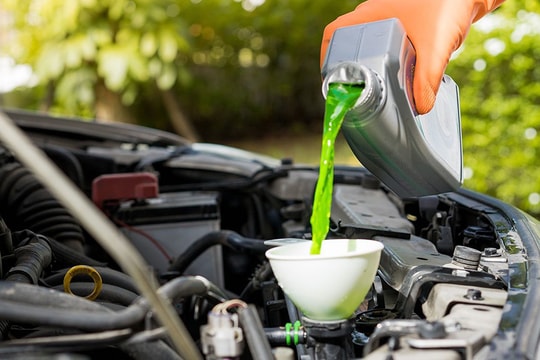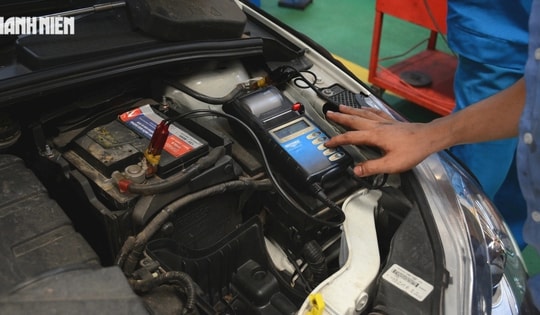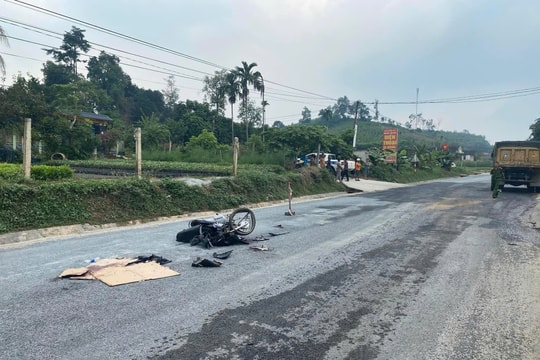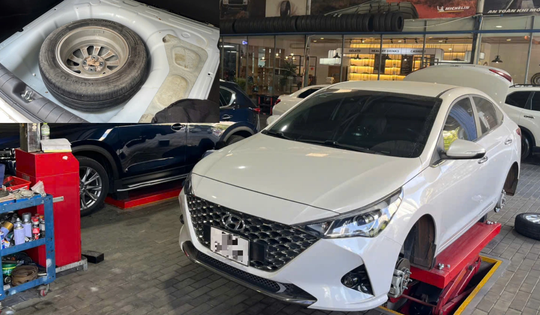5 main reasons why cars suddenly 'die' on the road
During the process of using a car, it is not uncommon for our beloved car to suddenly die while driving. This may come from the driver's handling, but mostly due to the technical condition of the car.
Sudden engine failure is not uncommon in older cars that are not regularly maintained. In many cases, the car is forced to "lie on the road", causing unsafety, inconvenience and expensive rescue and repair costs.

Sharing about this issue, auto engineer Duong Trung Kien - Director of Kien Phong Auto Company Limited (Cau Giay, Hanoi) said that old cars used for over 10 years have many errors that cause the car to be weak, jerky, have unstable rpm, and more seriously, the car will die in the middle of the road.
According to Mr. Kien, in addition to reasons related to the driver's actions and handling or even the car running out of gas, there are at least 5 reasons that lead to the car engine suddenly stopping while driving on the road as follows:
1. Fuel filter, injector clogged
Before fuel enters the engine through the injector, it must go through the fuel filter to remove impurities, dirt, etc. Over time, the fuel filter is easily clogged with dirt, unclean fuel leads to blockage in the injector, making the engine weak, sluggish, fuel-consuming, unstable rpm and can suddenly stop.
To fix this, you should check and replace the fuel filter regularly, about every 10,000-15,000 km. At the same time, you should flush and clean the intake nozzle periodically after about 20,000 km of operation.
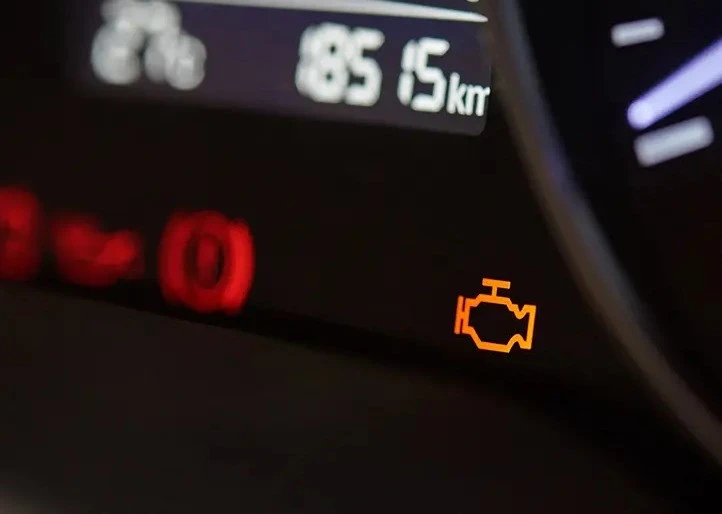
2. Faulty ignition coil and spark plugs
The ignition system of the car is responsible for the coil and spark plugs. If there is a problem, the spark will be weak or ignite at the wrong time, greatly affecting the combustion process of the mixture of air and fuel, causing the car to be weak, vibrate, slow to start, difficult to start and consume a lot of fuel. In this case, the 'goldfish' Check Engine light is often on on the car's dashboard.
When you see the above signs on your car, you should check and clean the spark plugs and the entire ignition system in general. If the coil, high voltage wire, spark plugs are severely worn and degraded, they should be replaced to ensure the car operates well. In particular, spark plugs should be cleaned every 20,000km and should be replaced at most after 100,000km.
3. Fuel pump failure
The gasoline pump (gasoline motorbike) and the high pressure oil pump (diesel motorbike) are the parts responsible for pumping fuel through the injector into the combustion chamber, performing the combustion process.
This part is quite durable, but when it malfunctions, the car will not be able to operate, causing the engine to stall even when driving normally. At this time, the accelerator pedal will not work, and the car will not be able to restart. When the fuel pump/high pressure pump is damaged, the only solution is to take the car to the garage to check and replace the fuel pump.
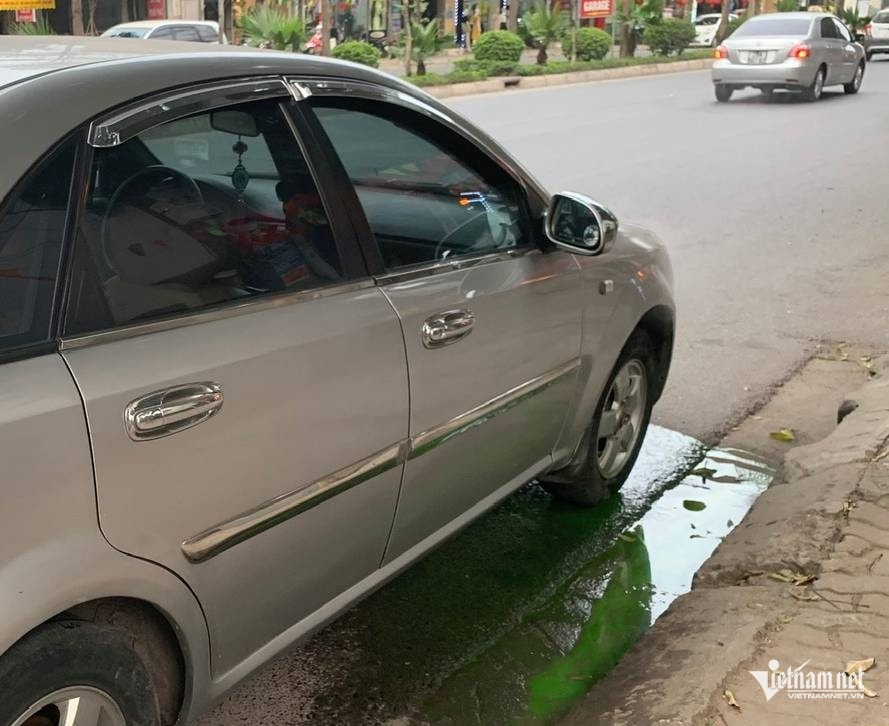
4. Out of coolant
Running out of coolant is also one of the main causes of car problems. If not detected early, the engine can overheat, easily stall in the middle of the road and other serious damage.
Signs of low coolant include high engine temperature, sluggish engine and some strange knocking noises.
To fix this, you need to regularly check the coolant. If there is a leak or loss of coolant, you need to fix it immediately. If the car is weak or stalls due to lack of coolant while driving, immediately stop the car in a safe place, open the hood and wait about 20-30 minutes for it to cool down, then add more water or ask for help from the garage.
5. Unsafe lubricants
If the car has not had its oil changed for too long, leaks, consumes too much oil, or uses low-quality, degraded oil, etc., it can easily cause the engine to overheat, possibly causing the car to stall. At this point, the car feels sluggish, not powerful, and makes an unusually loud engine noise and the engine "faints".
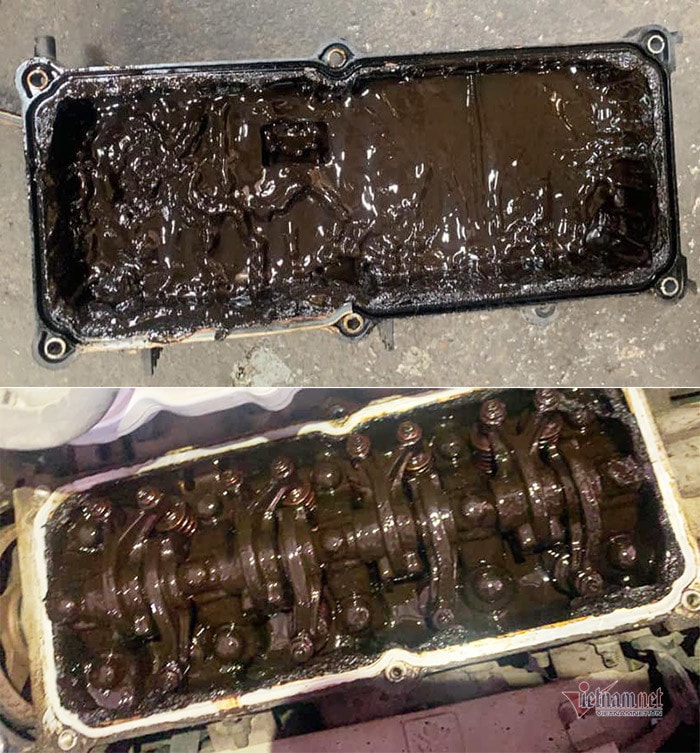
This error can be detected through the engine oil pressure warning light on the central instrument cluster or the car has an oil leak under the chassis, in the engine compartment or the car has abnormal oil consumption, in some cases there may also be a burning smell.
If the vehicle experiences the above symptoms, you should take the vehicle to the garage to check the oil level and add or replace it immediately. At the same time, in the long term, you need to find out the cause of the oil loss, if any, to ensure safety on the road.

